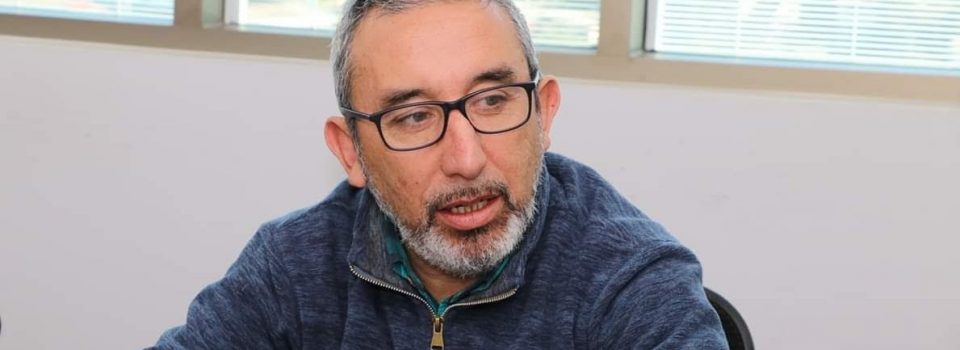Interview: César Jorquera Monsalve, San Vicente Fishermen’s Association’s President
October 24th, 2022Tell us about your life linked to the sea
Born and raised in Caleta Chome, Talcahuano was a whaling settlement, then the crisis came and my family had to dedicate to artisanal fishing. During early 1980s my parents decided to leave Caleta Chome and moved to live in Talcahuano, always linked to the sea, I spent two years studying at the university, we didint have eough money to move foward with my study plan in those years, so I dedicated myself to work as a boat’s crew member. We traveled through much of Chile, it was five months working albacore, five cod, we got to Guamblín Island with cod fishing, the other two months we dedicate ourselves to conger, here in San Vicente
Any experience at the sea that you remember until today
Many, learning from adults, I was an apprentice who had to do everything, on the boats they paid us less, half than the most experienced. I had to pay a share and after a year of being an appretice I became an expert and earned the same as everyone else.
As a negative experience I remember September 15th, 1995 on Guafo Island when we were in cod fishing in the Yolanda Jesús, my grandfather’s boat, we were on the verge of death, I noticed how tragic the situation was when I saw my uncles, expert wolves of sea were crying above the deck, since we were about to turn around, it was a very strong storm, the sea caught us, the boat was crossed and the sea hit us from all sides,
How did you get into union activity?
After 1998, I retired from fishing because it was a bad time in the fishing activity and I started working on land, I have done all kinds of jobs in my life, in 2008, my brother invited me to work with him on a pelagic boat contributing with my knowledge of logistics and administration, to see its proper maintenance and thus get the most out of the boat, with the fewest days lost due to regular failures ; at that time I took advantage of getting into the union issue, since the system forces you, you have to keep track of quotas, distribution, you have to always be informing the authority, since this fishery is highly regulated, there is permanent information that has to be shared with the associates, after the Fishing Law, in force until today , we must always be working so that the changes do not affect the fishermen.
How is your relationship with IFOP?
At the beginning there was a lot of skepticism, since we considered that the quotas that were being delivered with the Fisheries Law were very limited and then we began to realize that the Law had changed, since now the quota was related to scientific criteria. , there we began to get to know and be closer to IFOP, it is a mutual relationship between fishermen and IFOP scientists. We began to participate in the meetings that IFOP invited us and to exchange knowledge and mutual experience.
How was the Safa Project born?
The SAFA project was born out of the transversal need for pelagic fishing in the Biobío Region. We considered that the studies being carried out were not sufficient for decision-making, there were many spaces left that we felt were not covered by research, there We turned to the Regional Government, with the majority of the trade union organizations in the region so that the Government will be able to finance a program that will complement what the IFOP was already carrying out, in order to have more and better knowledge about the resource.
I want to congratulate IFOP, since there is a very good relationship, we need each other. We would love for Chile to later have exclusive research vessels, coastal boats for shore bias, we as fishermen need to know the scientific information.
Hopefully we can change the extractive model, that is, this fishery is structured by calendar year from January to December, and there are many cases in which a good-sized resource is caught in December, without eggs, but since there is a fixed ban in January, it cannot continue capturing, by changing the biological year model, we believe we can make better use of the resource
Thank the Regional Government, because it reached into its pocket so that this complementary study could be carried out
Press related links:
